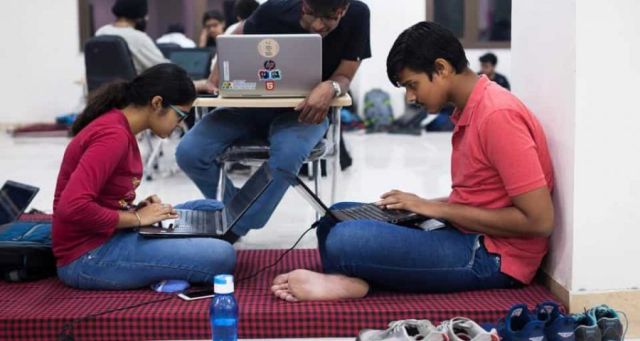
by admin | May 25, 2021 | World
 By Arul Louis,
By Arul Louis,
New York : India is the second largest international reservoir for the US higher education institutions having sent 196,271 students here in the last academic year, according to latest data.
Their numbers continued to grow, with a 5.4 per cent increase in 2017-18 over the previous academic year, according to the Open Doors report from the State Department and the Institute of International Education.
In the other direction, 4,704 students went to study in India during 2016-17, latest period for which data is available. It was an increase of 12.5 per cent from the previous year.
The report said that there was a steep fall in the number of Indian students at the post-graduate level in the US. Their numbers came down by 8.8 per cent to 95,651 in 2017-18 compared to the previous year, while the number of students in practical training programmes after graduation shot up by 32 per cent to 75,390, according to the report.
The number of undergraduate students also went up by 6.2 per cent to 23,346.
Indians made up 17.9 per cent of total of 1,094,792 international students in the US last academic year.
China sent 363,341 students, the most of any country.
In 2016-17, there were 186,267 students from India in the US, a 24.9 per cent increase over the 165,918 the previous year.
During 2016-17, there were 21,977 students in undergraduate programmes, 104,899 in graduate courses and 57,132 in practical training programmes.
The State Department said international students contributed $42 billion to the US economy and supported 450,000 jobs.
(Arul Louis can be reached at arul.l@ians.in and followed on Twitter @arulouis)
—IANS
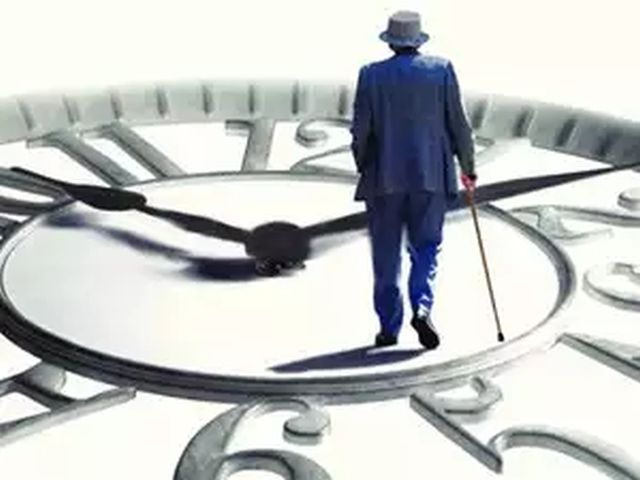
by admin | May 25, 2021 | Investing, News, Pensions & Sipps
 New Delhi : Fifty eight million people in India are living without pension or any other form of assistance, civil society organisation Pension Parishad has said.
New Delhi : Fifty eight million people in India are living without pension or any other form of assistance, civil society organisation Pension Parishad has said.
Citing the State of Pensions in India Report 2018, Economist Prabhat Patnaik said the Central government spends as little as 0.04 per cent of the GDP for its flagship Indira Gandhi National Social Assistance (IGNOAPS) programme for ensuring income security for the elderly.
“It will cost only about 1.6 per cent of the present-day GDP to ensure 90 per cent of the elderly population a pension of Rs 2,500 per person every month,” Patnaik said.
According to National Social Assistance Programme (NSAP), a welfare programme administered by the Ministry of Rural Development, 80 million elderly people in India are entitled to a pension of Rs 200 per month.
This meagre amount reaches only about 22.3 million people, Pension Parishad Coordinator, Nikhil Dey said.
The organisation also pointed out that countries like Nepal, Bolivia, Lesotho, Bostwana, Ecuador — all much smaller economies as compared to India — ensure better social pensions for their elderly citizens.
—IANS
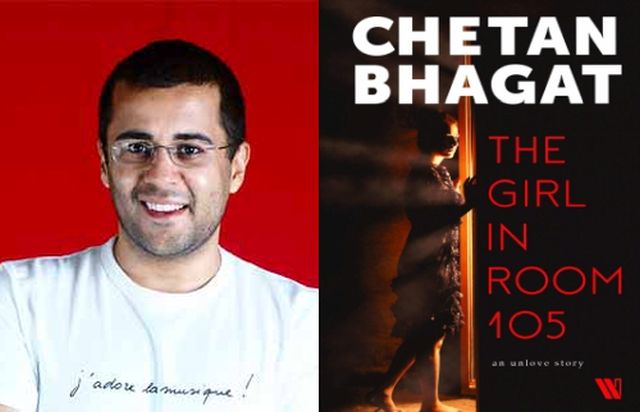
by admin | May 25, 2021 | Interviews
 By Saket Suman,
By Saket Suman,
New Delhi : Bestselling author Chetan Bhagat, who has taken a leap of faith in his upcoming novel “The Girl in Room 105” in which the protagonists are a Kashmiri Muslim girl and her lover from an RSS-affiliated family, says that Muslims, particularly from Kashmir, are victims of “unintentional racism” on a daily basis in the Indian mainstream.
“After having researched and written this book, it is my belief that the first step to understanding things would be to know what is happening. Most Indians don’t know a thing about Kashmir. All they know (about) is Indian Army and terrorists. I think that is like a very narrow-minded way of looking at the problem,” Bhagat, whose novels have sold hundreds of thousands of copies and have been inspiration for blockbuster Bollywood movies like “Three Idiots”, told IANS in an interview here.
He related that once he was on a panel interviewing MBA candidates for a business school when one of the aspirants introduced himself and said: “Sir, I am from Kashmir but I am not a terrorist.” On another occasion, Bhagat was caught in traffic on Mumbai’s Western Express highway while on way to boarding a flight.
“I didn’t know what to do. I got out of my car and asked a young boy on a bike to drop me to the airport. He took me but said that I will drop you a little further from the airport because there are some cops there. I enquired what the issue was. His reply: ‘I am a Muslim guy on a bike at the airport, they will trouble me’,” Bhagat said.
“If I am not a Muslim I don’t realise what they go through. I know there are no riots and people are not burning each other but it is this daily feeling that I better maintain a low profile, stay away from the crowd, that is more disturbing. I think that should not be the case in a free country. People need to understand that our country is becoming too polarised,” he quipped.
He acknowledged that there are some “terrible things” happening but the bigger issue, according to the author, is what the Muslims go through on a daily basis.
“I am aware that there are complex issues but broadly you first need to talk to them and they need to talk to you. The more Kashmiri youths interact with the rest of the country and vice versa, the better our prospects are.
“They don’t have cinema there, their internet goes down so many times, I mean that’s not the way the people of our own country deserve to live, right? Just because they are from Kashmir, they live with it everyday. There is an implied, unintentional racism happening all the time,” Bhagat maintained.
He said that books are “one of the best mediums” of bringing about a change.
“Right now, people see Kashmiris, and Kashmiri Muslims particularly, and think that they are different from us. But the moment they will read my story, where a Kashmiri Muslim girl is living in a hostel and doing things that any of us do, they will realise that Kashmiri Muslims are also just like me and you…It will give a clearer understanding of the issue than mere statistics and experts in TV panels can. The aim is to familiarise people with the Kashmir issue,” he said.
The father of the male protagonist in “The Girl in Room 105” is a member of the Rashtriya Swayamsevak Sangh (RSS).
“I think that in itself sparks a discussion. An author’s job is to highlight and mirror the society. I am sure there are many people who know much more about Kashmir than I do but my point is an average Indian is also not an expert. Without judgement, I have tried to present to my readers that you see if this is the country you want to create,” he said.
The book, published by Westland, will be released in October and is currently available for pre-order on Amazon.
“A fair and just society is important. It doesn’t matter what the majority opinion is. You can’t have a system work if you go by what the majority thinks all the time. Justice is justice and the weakest has to be protected first but this is being questioned right now,” Bhagat said, while also pointing out that it is difficult to maintain “a Centrist point of view” in India today.
(Saket Suman can be contacted at saket.s@ians.in)
—IANS
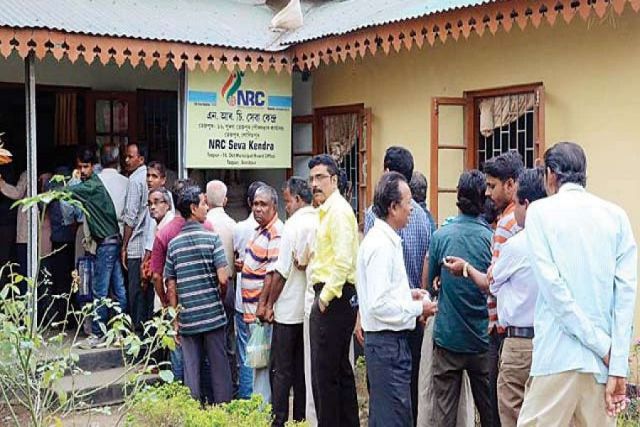
by admin | May 25, 2021 | News, Politics
 Kolkata : The Joint Action Committee for Bengali Refugees (JACBR) on Monday demanded the inclusion of all Indians in the draft NCR in Assam and grant of citizenship rights to those who arrived in the country on or before December 31, 2014.
Kolkata : The Joint Action Committee for Bengali Refugees (JACBR) on Monday demanded the inclusion of all Indians in the draft NCR in Assam and grant of citizenship rights to those who arrived in the country on or before December 31, 2014.
The committee, enlisted as one of the stakeholders by the Supreme Court whose suggestions be taken into account while drafting the standard operating procedure (SOP) for filing claims and objections for inclusion in the National Register of Citizens (NRC), said that it would submit a memorandum to West Bengal Governor Keshri Nath Tripathi on August 30 on their demands.
It claimed that there is an attempt to keep away certain people from the NRC list in Assam and divide the country on communal lines. It said all Muslims living in India be considered as its citizens and not Bangladeshi infiltrators.
“Most of the over 40 lakh people left out of the draft NRC in Assam are actually Indian citizens. There might be a negligible percentage who may have infiltrated from Bangladesh. There is an attempt to leave out people from the NRC. We demand every Indian to be included in the citizenship list,” its President Sukriti Ranjan Biswas said.
“The BJP is saying that migrants belonging to the Hindu, Sikh, Buddhist, Jain, Parsi, Christian or other religious communities coming from neighbouring countries (mostly from Afghanistan, Bangladesh or Pakistan) on or before December 2014, should be granted residence in India but not citizenship. We demand all these people be given citizenship rights in accordance with the Citizenship Amendment Bill, 2016,” he said.
Terming the documentation process of the NRC as unjustified, he said it was impossible for economically backward people of Assam to preserve old documents as they have been displaced several times due to natural calamities in the state.
—IANS
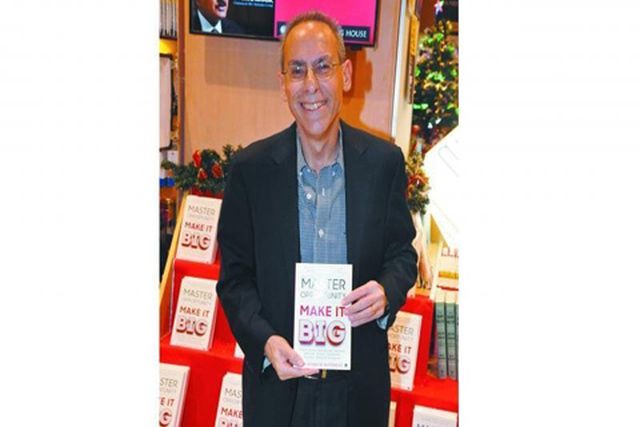
by admin | May 25, 2021 | Books, Entrepreneurship, Social Entrepreneur, Success Stories
 By Gokul Bhagabati,
By Gokul Bhagabati,
With a powerful combination of brainpower, entrepreneurial energy and favourable demographics, India is the world’s greatest land of opportunities, says American author Richard M. Rothman, who has come up with a book that aims to help ordinary Indians do extraordinary things.
Rothman believes that the time for every Indian to think big has arrived, and his book, “Master Opportunity and Make it Big” (Jaico Publishing House; Pages: 249; Price: Rs 350), which draws on lessons from some of the most successful Indian entrepreneurs who have gone from rags to riches by grasping opportunities, can show the way.
“I think it is the first book of its type which is designed completely for Indians. All the other self-help books that Indians generally buy are about Americans — including the number one selling book ‘Think and Grow Rich’, which was written some 80 years ago,” Rothman, who has settled in India after living and working around the world for decades, told IANS in an interview.
So if you are one of them blaming lack of money, knowledge, or luck for not realising your full potential, this book wants to tell you that you have been barking up the wrong tree all this while.
Rothman, who had served as the Trade Commissioner of the US for India for 10 years, seeks to drive home the point that all you need to be the person that you always wanted to be is the right opportunity, and the really great ones are like powerful magnets that attract money and talent.
What is more, opportunities do not come with a price tag on them. So the most important thing that you need to succeed is out there — all for free — for you to grab.
And if that sounds unbelievable, Rothman gives the examples of not one or two, but 18 Indians who were not born with silver spoons in their mouths.
He shows that one does not need to be the Tatas or Birlas to be super achievers in India. Nor do they need all the so-called “connections” that many tend to assume.
All the people mentioned in the book started small, but they leveraged opportunities to build great businesses. And today they have together created wealth of well over Rs 100,000 crore.
Some of these entrepreneurs are so well-known today that readers might find it hard to believe that they had such humble beginnings.
When, for example, Subhash Chandra, the founder of Essel (Zee) Group, moved from Hisar, a small city in Haryana, to New Delhi to start a business, all he had in his pocket was Rs 17. And although he launched satellite television in India, at first he did not even know the meaning of the word satellite, according to Rothman.
“There is no need to know it all,” says the author, who founded “OpenMind”, a Mumbai-based opportunity consultancy that helps companies discover opportunities for sustained profitable growth.
Similar is the story of Rafique Malik, who transformed Metro Shoes into India’s second-largest shoe retailer. Son of a shoe salesman, Malik started with a single store and now owns about 350 stores spread across the country.
Although not biographical in nature, Rothman extracts important lessons from the processes that made some of the stalwarts of India Inc. what they are today.
Included in the book are also the success secrets of Uday Kotak, Founder of Kotak Mahindra Bank; Vijay Mansukhani, who co-founded and built Onida, once one of India’s greatest television brands; and of the renowned hotelier Vithal Kamat, among others.
While success stories of 18 individuals who have attained success in different types of businesses constitute the first part of the book, the second part is dedicated to elucidating what Rothman calls “Opportunity Sutras”, important lessons that can help readers capture and leverage breakthrough opportunities.
In Rothman’s terms, opportunity is, however, not a magic pill that one can gulp one day and wake up successful the next morning. Opportunity, according to him, is a journey — not a destination — that requires constant engagement.
He highlights the processes that are needed to keep finding opportunities to stay relevant in changing business environments. This is the reason why the book could be of immense help even to those who have already started their ventures but do not want to bite the dust in the storms of innovations brought about by new entrants.
Strangely, though, all the successful people in his list of 18 are men and one wonders why Rothman did not find it essential to tell the story of even one successful woman in a book meant to inspire millions of Indians. This omission perhaps reflects the unfortunate disparities in Indian society that has historically deprived certain sections of the population from having access to equal opportunities — be it on the basis of gender, or caste.
(Gokul Bhagabati can be contacted at gokul.b@ians.in )
—IANS





